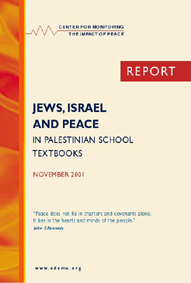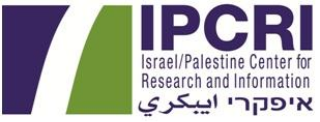
The United Nations Relief and Works Agency for Palestine Refugees in the Near East is a UN agency that supports the relief and human development of Palestinian refugees. UNRWA's mandate encompasses Palestinians who fled or were expelled during the Nakba, the 1948 Palestine War, and subsequent conflicts, as well as their descendants, including legally adopted children. As of 2019, more than 5.6 million Palestinians are registered with UNRWA as refugees.

Reporters Without Borders is an international non-profit and non-governmental organisation focused on safeguarding the right to freedom of information. It describes its advocacy as founded on the belief that everyone requires access to the news and information, in line with Article 19 of the Universal Declaration of Human Rights that recognises the right to receive and share information regardless of frontiers, along with other international rights charters. RSF has consultative status at the United Nations, UNESCO, the Council of Europe, and the International Organisation of the Francophonie.

The Middle East and North Africa (MENA), also referred to as West Asia and North Africa (WANA) or South West Asia and North Africa (SWANA), is a geographic region. While still referring to most of the Middle East and North Africa together, it is widely considered to be a more defined and apolitical alternative to the grouping of countries that is known as the Greater Middle East, which comprises the bulk of the Muslim world.
Bias in curricula refers to real or perceived bias in the educational textbooks.
The Saudi Arabian textbook controversy refers to criticism of the content of school textbooks in Saudi Arabia following the September 11 attacks.

Education in the State of Palestine refers to the educational system in the Gaza Strip and the West Bank, which is administered by the Palestinian Ministry of Education and Higher Education. Enrollment rates amongst Palestinians are relatively high by regional and global standards. According to a youth survey in 2003, 60% between the ages 10–24 indicated that education was their first priority. Youth literacy rate was 98.2%, while the national literacy rate was 91.1% in 2006. The literacy rate ages 15-24 was 99.4% in 2016. Enrollment ratios for higher education were 45% in 2022. In 2016 Hanan Al Hroub was awarded the Varkey Foundation Global Teacher Prize for her work in teaching children how to cope with violence.
Textbooks in Israel and the Palestinian territories have been an issue within the larger Israeli–Palestinian conflict.

Jordan–Syria relations are bilateral relations between the sovereign states of Jordan and Syria. Relations between neighbours have ancient roots as both countries are historically parts of the Levant or Greater Syria. The two states were created after the First World War from former Ottoman dominions by way of a secret bilateral agreement between Britain and France.

The Arab–Israeli conflict is the phenomenon involving political tension, military conflicts, and other disputes between various Arab countries and Israel, which escalated during the 20th century. The roots of the Arab–Israeli conflict have been attributed to the support by Arab League member countries for the Palestinians, a fellow League member, in the ongoing Israeli–Palestinian conflict; this in turn has been attributed to the simultaneous rise of Zionism and Arab nationalism towards the end of the 19th century, though the two national movements had not clashed until the 1920s.

Iran–Turkey relations are the bilateral relations between the Islamic Republic of Iran and the Republic of Turkey. The two states' relationship is complex and characterized by periods of both tension and cooperation, as both Iran and Turkey are fighting for influence in the Middle East through supporting opposing proxies as part of a proxy conflict. The two countries are also major trade partners and are perceived as mutually interdependent due to geographical proximity as well as historically shared cultural, linguistic, and ethnic traits.
Textbooks in Israel are published in Israel by the Ministry of Education of Israel and other educational institutions.

Palestinian Textbooks: From Arafat to Abbas and Hamas is a March 2008 publication by the Institute for Monitoring Peace and Cultural Tolerance in School Education (IMPACT-SE) and the American Jewish Committee (AJC). The book summarizes former analyses by IMPACT-SE of Palestinian Authority textbooks, beginning in 1998, and outlines how Palestinian school textbooks have changed or not changed under the leadership of Yassir Arafat, Mahmoud Abbas, and Hamas regarding the portrayal of peace and the 'Other', namely Israel and Jews.

Jews, Israel and Peace in Palestinian School Textbooks is a November 2001 publication by the Institute for Monitoring Peace and Cultural Tolerance in School Education (IMPACT-SE) -- then the Center for Monitoring the Impact of Peace (CMIP) -- on how Palestinian school textbooks portray peace and the 'Other', namely Jews and Israel. The publication is the first in a series of textbook analyses on Palestinian textbooks, with the most recent publication, Palestinian Textbooks: From Arafat to Abbas and Hamas, published in March 2008.

Saudi Arabia and Turkey relations have long fluctuated between cooperation and alliance to enmity and distrust. Since the 19th century, the two nations have always had a complicated relationship. While Turkey and Saudi Arabia are major economic partners, the two have a tense political relationship, deemed from the historic enmity.
The Protocols of the Elders of Zion is a fabricated antisemitic text purporting to describe a Jewish plan to achieve global domination. The text was fabricated in the Russian Empire, and was first published in 1903. While there is continued popularity of The Protocols in nations from South America to Asia, since the defeat of Nazi Germany, Fascist Italy, and Imperial Japan in World War II, governments or political leaders in most parts of the world have generally avoided claims that The Protocols represent factual evidence of a real Jewish conspiracy. The exception to this is the Middle East, where a large number of Arab and Muslim regimes and leaders have endorsed them as authentic. Past endorsements of The Protocols from Presidents Gamal Abdel Nasser and Anwar Sadat of Egypt, Iraqi President Arif, King Faisal of Saudi Arabia, and Colonel Muammar al-Gaddafi of Libya, among other political and intellectual leaders of the Arab world, are echoed by 21st century endorsements from the Grand Mufti of Jerusalem, Sheikh Ekrima Sa'id Sabri, and Hamas, to the education ministry of Saudi Arabia.
Islam is both the majority and official religion in the United Arab Emirates, professed by approximately 76% of the population.The Al Nahyan and Al Maktoum ruling families adhere to Sunni Islam of Maliki school of jurisprudence. Many followers Hanbali school of Sunni Islam are found in Sharjah, Umm al-Quwain, Ras al-Khaimah and Ajman. Their followers include the Al Qasimi ruling family. Other religions represented in the country including Christianity, Hinduism, Buddhism, Zoroastrians, Druze, Baha'i, Judaism, and Sikhism are practiced by non-nationals.

The Israel/Palestine Center for Research and Information is a joint Israeli/Palestinian NGO and public policy think tank based in Jerusalem working towards building partnerships in Israel/Palestine. Under shared Israeli-Palestinian leadership, IPCRI carries out research and projects in various fields from economic development to environmental sustainability. IPCRI also facilitates public outreach and track two negotiations between Israelis and Palestinians.
Academic freedom in the Middle East is a contested and debated issue, which has caught regional and international attention. In the Middle East and North Africa (MENA) region, in general, the authoritarian regimes have all showed a certain degree of opposition to every sort of freedom, academic one not excluded, regardless of the type of regime basis they had. Freedom for academicians to inquiry, research, teach and communicate ideas or report facts without being threatened or persecuted or with the possibility of losing their position, being censored or repressed is threatened. What contributes to academic freedom violations is also that they are essential elements for the regimes to maintain their power and in addition to this issue, interstate and civil wars as well as internal disorders and external intervention can damage educational structures and institutions. Additionally, as far as the regime is concerned, a security or national threat can be a pretest for suffocate or suspend academic research and debate. Restrictions on academic freedom also regards the topics of research, which are under significant constraints, although these might be highly interesting and worth researching.
Marcus Sheff is an Israeli-British non-profit chief executive officer (CEO), former media executive and journalist.











